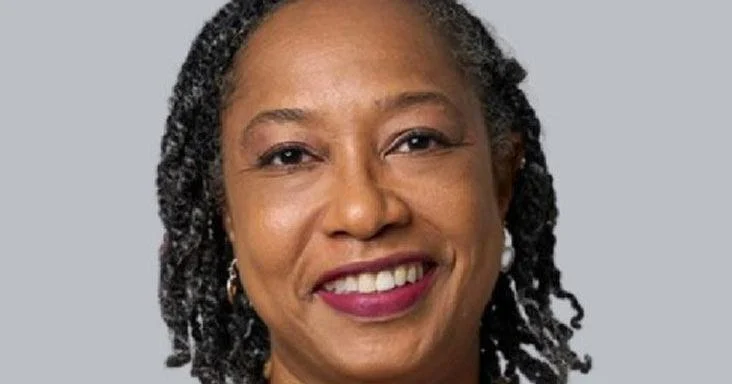By Melissa Maynard
Copyright trinidadexpress

Trinidad and Tobago has an opportunity to monetise its creativity in the digital economy, said Denyse White, the deputy national chief digital officer at the Ministry of Public Administration and Artificial Intelligence.
White said this during the Central Bank’s annual Research Review Seminar held recently at its auditorium.
The panel discussion, titled “The Digital Economy—Rewiring the Analog Economy to Achieve Durable Benefits”, also featured vice president of Liberty Caribbean Trinidad Simone Martin-Sulgan; senior advisor at the Representative Office of the Americas, Bank for International Settlement, Dr Christian Upper; and Agyei Archer, the founder of Public Good Studio,
White emphasised that the digital economy is about value creation.
“It should not be simply putting technology on to an analog existence, but rather leveraging not just technology but process, people, that are supported by an enabling environment for identifying emerging opportunities,” she said.
She stressed that this approach is particularly important for Trinidad and Tobago as a small island developing state.
“We don’t face the same issues as our neighbours in the North; as our larger counterpart worldwide, a lot of people compare Trinidad with Estonia, which has 1.3 million people and which is fully digital,” said White.
“All of Estonia’s government services are available online. But it is not an apples-to-apples comparison; there are different factors at play, and I think for Trinidad and Tobago, the digital economy is an opportunity for us to leverage our unique brand, our way of doing things, our knack for creation—and monetise that creation,” she said.
White also highlighted the importance of consistently seeking new opportunities that technology and global connectivity provide.
Citing a MarketsandMarkets report, Kirk Henry, the group chief information officer at ANSA McAL, noted that the global digital transformation market has been projected to grow from US$911.2 billion in 2024 to US$3.3 trillion by 2030, at a compound annual growth rate of 23.9%. He said this growth would be driven by businesses’ need to meet customer demand, improve operational efficiency, and build digital public infrastructure.
“This is as a result of the need by businesses to keep pace with unrelenting customer demand, a focus of improved operational efficiency and an ongoing governmental focus on the buildout of digital public infrastructure,” he said.
Henry questioned how T&T might benefit from this growth.
White asked, “What is the contribution of information and communication technology (ICT) to the GDP of Trinidad and Tobago?” White noted the last measure was between 2% and 4%, questioning whether this was truly reflective of the sector’s impact.
“Are we measuring technology services businesses, or are we really measuring the impact of technology that is integrated across the board, so, not just the deliverance of technology services but how it impacts all actors in our economy? We are a nation of small businesses, so we cannot use the same types of measurements that we see globally to assess what is going on in Trinidad and Tobago,” she said.
Scaling up and inclusion
White stressed that it could not be business as usual.
“Even sitting within Government, we look at some possible policymakers that we have to pull to be able to stimulate and prime that engine…I like to think of the Government role of priming that engine; and that is going to be built around things like collaboration, because the Government cannot do it alone. They have to be able to partner with the private sector who has the experience, who has the better measurement in terms of ROI, and allow for a symbiotic relationship to exist,” she said.
Inclusion, she said, was key.
“MSMEs, SMEs—these are the guys who are the real engine in what we are doing, and if we want to stimulate activity, then we need to be looking at the lower levels in terms of business size,” White said.
Martin-Sulgan added:
“At Liberty Caribbean we believe that preparedness is not just about connectivity. It is about making sure that the infrastructure is secured… making sure it is scalable. We don’t all have to use the same thing; (it’s about) learning from one another; benefitting from interconnectedness; the geography we can leverage; and also, making sure it is sustainable—sustainable to be able to support the next wave of innovation,” Martin-Sulgan said.
She argued that Trinidad and Tobago’s infrastructure is well placed, adding: “We just need to keep up with the technology to make sure we are not left behind.”
Challenges for small businesses
Archer highlighted three major challenges for small businesses: lack of core business fundamentals, insufficient public sector support, and weak financial infrastructure. He said entrepreneurs often face regulatory and infrastructural hurdles, especially in sectors like agriculture.
“I think that we have a very deep wealth of small business innovators and people who have great ideas and people who wants to make positive change, but the reality is there is a way in which some of those ideas tend to be distant from the nuts-and-bolts business reality of needing to make more money than you’re spending,” he said.
He believed not enough businesses were being encouraged “to do the boring stuff”.
Archer expanded on these barriers, identifying what he termed a “trifecta of challenges”: lack of basic business fundamentals, insufficient public sector support, and weak financial infrastructure.
He stressed that small businesses must prioritise core operational and financial principles to remain viable, but are often not encouraged to do so. Turning to the public sector, he cited regulatory and infrastructural hurdles, particularly around cross-border trade in agriculture.
Sharing his experience with AgriConnect, an agritech company aimed at reducing food import dependency, Archer explained: “We can’t, for example, easily import hot peppers from Dominica, no matter how good the deal is… there’s no policy around that. We don’t have the infrastructure around the plant import security and doing the right pest risk analysis.”
On financial systems, Archer noted that while online payment platforms like WiPay exist, implementation remains difficult for non-technical founders.
“Unless you are a founder who has either technical experience or money to hire a technical team, even now those implementations are hard. I don’t know that we have a solution that can help a small business owner who doesn’t know much about technology set themselves up for online payments,” Archer said.
He added that digital-focused entrepreneurs often lack the support available to traditional businesses.
“Smaller businesses who have had their focus on digital business don’t have the same kind of ready-made support as somebody who is, for example, buying rum at $5 and selling it back at $7.”
He stressed the importance of small businesses and entrepreneurs being taken seriously by banks.



